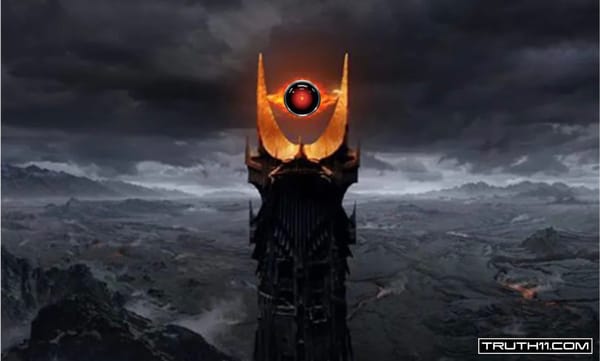Beware Of The Derogators + Violators | The Four Geneva Conventions

The Geneva Conventions Turn 75
GlobalResearch.ca | Dr. Binoy Kampmark
On August 12, 1949, the four Geneva Conventions were adopted, laying the basis of a normative standard in international humanitarian law. As Balthasar Staehelin, personal envoy of the International Committee of the Red Cross (ICRC) president to China, stated at an anniversary event at the Swiss Embassy in Beijing,
“In the past 75 years, the four Geneva Conventions have been fundamental in protecting persons affected by armed conflict, and international humanitarian law remains as relevant today for contemporary armed conflicts, as sit was 75 years ago.”
The very first Geneva Convention, inspired by the activism of Swiss businessman Henry Dunant and the International Committee for the Relief of Wounded Combatants, was adopted as far back as 1864. The instrument was intended to protect the vulnerable and wounded members of armed forces, and those responsible for their care. Three revisions and expansive updates followed: 1906, 1929 and 1949.
The Fourth Convention saw a legal revolution, crucial for offering protection for civilians, described by international jurist Hersch Lauterpacht as covering “entirely new ground not touched by the Hague Conventions”. It was also inspired in its novelty by recognising “certain minimum obligations of humane treatment even in armed conflicts which are not of an international character and even if the parties to the conflict, which may not be states, are not parties to the Convention”.
Of significance is Article 4, which defines the reach of such protection as covering persons “who, at any given moment and in any manner whatsoever, find themselves, in case of a conflict or occupation, in the hands of a Party to the conflict or Occupying Power of which they are not nationals.”
In humanitarian law, the gulf between observance and violation can be vast. In 2023, the United Nations recorded the deaths of 33,443 civilians in armed conflict. This constituted a 72% increase on those from 2022. Joyce Msuya, Assistant Secretary-General for Humanitarian Affairs and Deputy Emergency Relief Coordinator, cited conflicts in Gaza, Sudan, the Democratic Republic of the Congo, Myanmar, Nigeria, the Sahel, Somalia, Syria and Ukraine.
In her May address to the UN Security Council, Msuya noted more than 2,300 instances of violence and other forms of interference against those working in the medical field, along with patients, associated facilities, equipment and transport. By mid-year, a staggering 110 million individuals had been displaced due to the prevalence of conflicts, instances of persecution, violence and human rights breaches. These are the numbers of the invisible in speedy news cycles and flashy bulletins.
The gloomy figures keep coming and are bound to mesmerise. The ICRC makes an assessment that the numbers of armed conflicts globally hovers around 120, involving 60 states and 120 non-state entities. The post-Cold War environment has seen fertile grounds for this increase in number. Since 2000, non-international armed conflicts have burgeoned from under 30 to approximately 100.
The field is also characterised by a grand paradox, something that did not go unnoticed in comments made by the President of the ICRC, Mirjana Spoljaric Egger. States, she argues, must interpret and apply international humanitarian law to genuinely protect civilians. This is not as odd as it sounds, given that laws regarding war and conflict are in place, not so much to abolish the conflict but to give it a patina of restraint. Behind drafting such rules is a dark fatalism about human tendencies, and it does not look pretty. Such laws should not become “a tool to justify death, endless suffering and devastation.”
It is ironic that institutions such as war, in being placed in a realm of normative rules and regulations, can risk becoming more palatable, an egregious state of affairs to be tolerated rather than abandoned.
The crude mix of power politics will always see mischievous conduct and commentary on the applications of international humanitarian law. Derogations will be justified; selective readings made. A paper from the Permanent Observer Mission of Palestine to the United Nations delivered in Geneva on July 15, 1999, for instance, observed that Israel “refuses to accept the de jure applicability of the 4th Geneva Convention to the Occupied Palestinian Territory, including Jerusalem and has committed serious violations of every relative provision of the Convention.” UN resolutions condemning Israeli violations of the Fourth Convention had been many, and the occupation was “unique because of the multiplicity and intensity of Israel’s grave breaches, and serious violations” of the Convention, causing the Palestinian civilian population enormous suffering and representing “systematic and even institutionalized violations of international law.”

With full throated brutality, these breaches have merely increased with their intensity since October 7, with the attacks by Hamas being used as the pretext to inflict forms of suffering that would have made the drafters of the Conventions blanch. Instead of seeing the Geneva Conventions as more relevant than ever, insidious naysaying about their continued applicability can be found.
Mukesh Kapila, a former UN official and currently professor emeritus in global health and humanitarian affairs at the University of Manchester, is an example of this unfortunate flourishing, erroneously claiming that the current “new-style warriors were unknown when the Geneva Conventions emerged over a century ago.” He uses that irritatingly bureaucratic term “whole-of-society conflicts” – the very same the Fourth Convention was intended to address – as if it were novel, featuring “unarmed, non-uniformed combatants,” belligerents not at the “physical frontlines,” directing drones or unleashing “destructive computer viruses”. Such a reading is almost dotty in missing the point.
Thankfully, Ellen Policinski, a legal advisor for the ICRC, notes the trend with caustic salience, and turns her nose up at it. Conflicts and circumstances in war presented as lacking “historical antecedents” were exactly those that international humanitarian law, “including the Geneva Conventions,” were intended to regulate. The Second World War offered the expansive, bloody template for the drafters, from genocide to the use of human shields, sexual warfare and mass starvation. And those behind the documents, being a gaggle of soldiers, diplomats and humanitarians, acknowledged “the horrific realities of war which have not fundamentally changed.”
Better, it would seem, a world with the Geneva Conventions than one without them. To regard derogations from their text as a sign of irrelevance and inapplicability would be tantamount to claiming that any domestic law punishing murder was inconsequential and obsolete for not preventing homicide. What is needed, Policinski reminds us, “is not more or different rules” but “better respect for existing rules, something all states have a stake in.”
Original Article: https://www.globalresearch.ca/geneva-conventions-turn-75/5866417

True Journalism Reports The Truth
If you find the information and effort we provide valuable; please support our work by becoming a monthly subscriber or by making a small one time donation. Thank you Truth Warriors for supporting independent media.




Comments ()